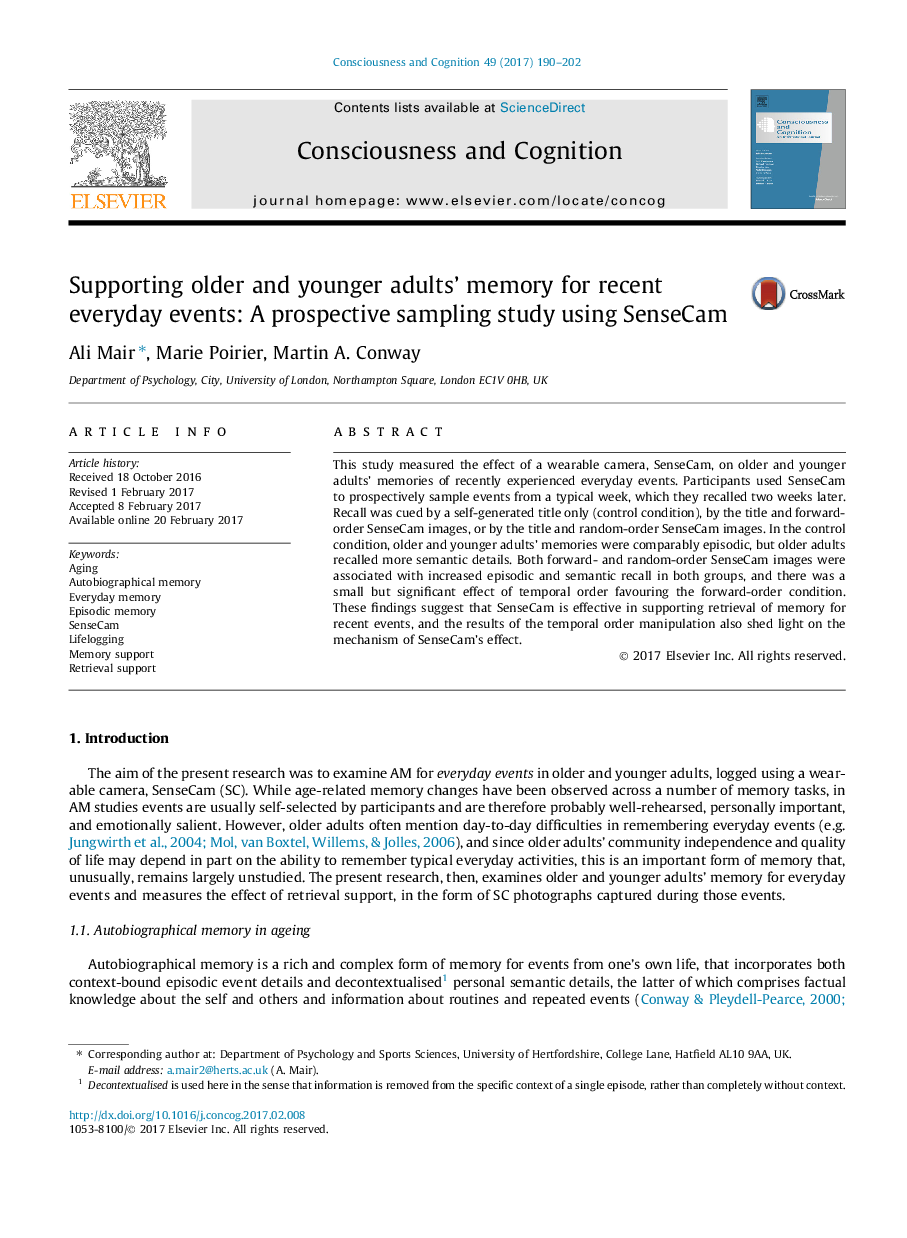| Article ID | Journal | Published Year | Pages | File Type |
|---|---|---|---|---|
| 5041870 | Consciousness and Cognition | 2017 | 13 Pages |
â¢We measured older and younger adults' memories for everyday events.â¢In both groups SenseCam improved recall of information not shown in the images.â¢Randomising the order of SenseCam images only modestly impacted performance.â¢Memories recalled by both groups were equally episodic, even without support.
This study measured the effect of a wearable camera, SenseCam, on older and younger adults' memories of recently experienced everyday events. Participants used SenseCam to prospectively sample events from a typical week, which they recalled two weeks later. Recall was cued by a self-generated title only (control condition), by the title and forward-order SenseCam images, or by the title and random-order SenseCam images. In the control condition, older and younger adults' memories were comparably episodic, but older adults recalled more semantic details. Both forward- and random-order SenseCam images were associated with increased episodic and semantic recall in both groups, and there was a small but significant effect of temporal order favouring the forward-order condition. These findings suggest that SenseCam is effective in supporting retrieval of memory for recent events, and the results of the temporal order manipulation also shed light on the mechanism of SenseCam's effect.
